Australia Day Awards: Senior Constable Lyn Gibson awarded Australian Police Medal
Blown tyres, flooded roads and donkeys stopping football games. It’s all part of a day’s work if you are a police officer on the APY Lands. Check out the amazing photos.
SA News
Don't miss out on the headlines from SA News. Followed categories will be added to My News.
On paper, it looms as one of the most challenging jobs in the state.
You’re working in one of the most remote areas of Australia and are charged with maintaining law and order in towns with notoriously high crime rates.
But Senior Constable Lyn Gibson wouldn’t have it any other way.
She’s been a police officer in the Anangu Pitjantjatjara Yankunytjatjara Lands in Central Australia for 16 years. She loves the work up here. Loves the landscape. Loves the remoteness. Loves the people she helps to protect.
She’s part of the SAPOL’s family violence intervention team based at Umawa, the administrative capital of the APY Lands, about 1300km from Adelaide and a stone’s throw from the Northern Territory border.
Senior Constable Gibson, a mother of two and grandmother of three, is one of three SA Police officers awarded an Australian Police Medal in this year’s Australia Day honours.
Dedicated regional Superintendent Mark Syrus and intelligence portfolio expert Senior Sergeant First Class Sandra Daly were the other recipients.
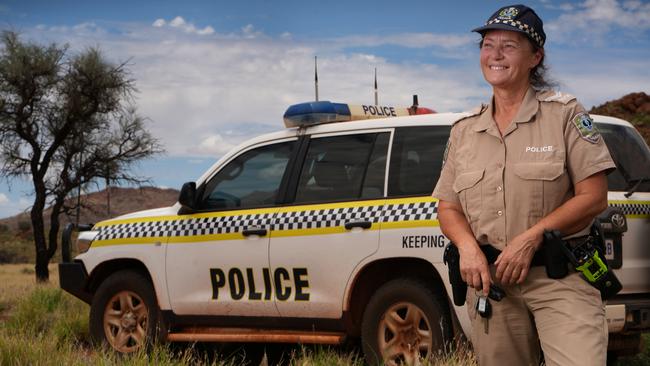
The medal is the latest in a swag of awards Senior Constable Gibson has received in the past six months. She also collected SAPOL’s prestigious Jo Shanahan award for outstanding work and was highly commended at an Australia Council Woman And Policing ceremony in Brisbane.
Senior Constable Gibson started her policing career in metropolitan Adelaide and spent 10 years in Ceduna on the West Coast before transferring to the APY Lands as child and family intervention officer.
“I really enjoy working in remote areas and I enjoy working with Indigenous people,” she says.
“I’m very honoured (to receive the Australia Day recognition) and it’s such a privilege to work with Anangu people in such a unique place as the APY Lands.
“I hope I’ve made a small contribution to supporting victims of family violence and I’m very grateful to have worked with and learned from many other dedicated colleagues who also deserve to be sharing this honour with me.”
As we catch up in SA Police’s airconditioned APY Lands headquarters to talk about life as an officer on the Lands, she whips out her phone to show us some of the pictures that offer a glimpse into her working life of past 16 years.
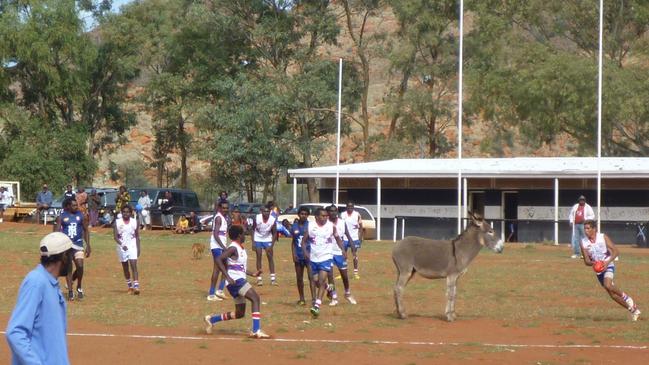
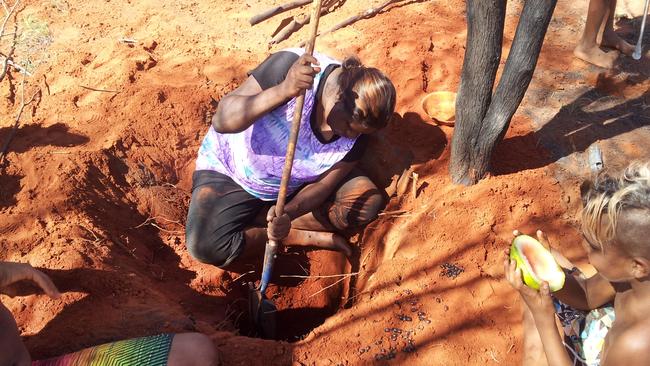

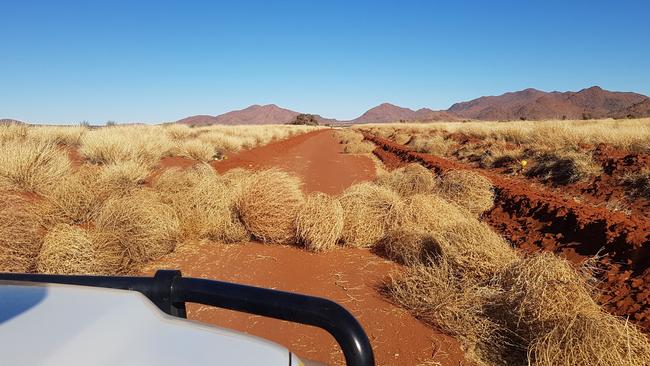
There are pictures from local football and softball games, where the dust of the surface can fly higher than the combatants. In one picture a donkey stands stoic near the 50m line as play continues around it during a grand final between Mimili and Fregon at Pukatja back in 2010.
She shows us photos of sunsets, bushfires, floods and waterholes, and of one of the times locals took her digging for honey ants.
“I love the relationships I’ve made with a lot of the people, particularly the women,” she says when asked to describe why she has stayed here so long.
“I enjoy the fact that I’ve worked with younger women when they might be 13, and now I’m there to support them as adults. I like the fact they trust to disclose things to me, because they’ve know me for such a long time.”
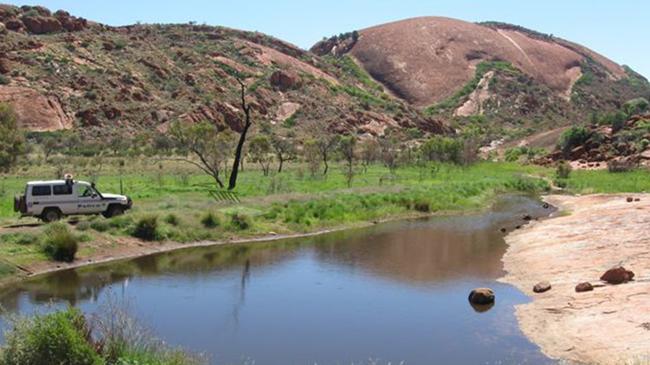
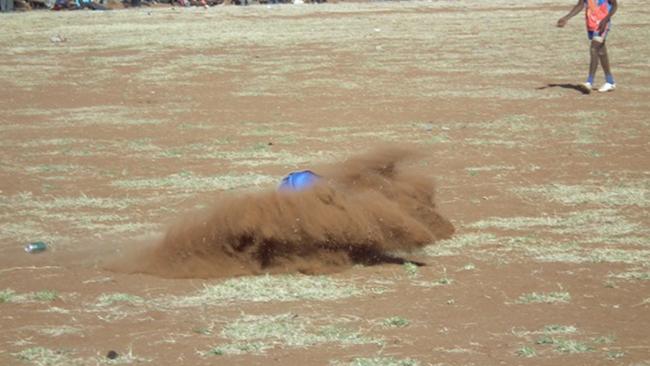
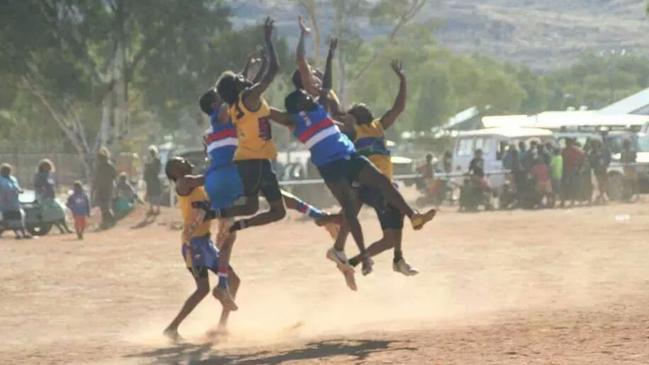
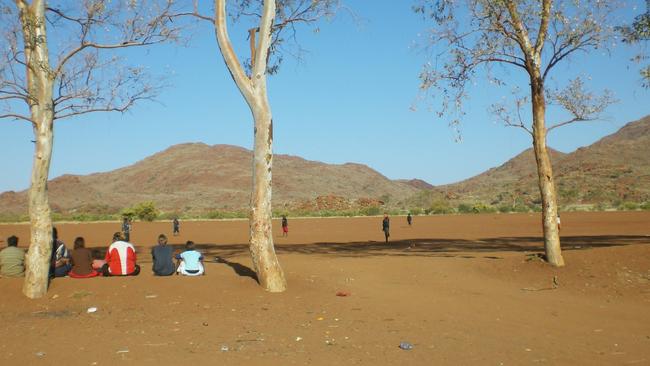
Joining us in conversation is her commanding officer, Senior Sergeant First Class Brian Stone.
She was born in New Zealand. He in the UK. But here, in the heart of Australia, they are part of a small team of officers charged with policing the Lands’ more than 100,000 hectares.
There’s only about 15 coppers on the books in the Lands. They work on a fly-in, fly-out basis, two weeks on and one week off.
Apart from the headquarters at Umawa, there are stations at Mimili, Amata, Pukatja and Murputja. New stations are being built at Fregon, Indulkana and Pipalyatjara. Not all of the stations are permanently manned, but their presence in the communities allows police to speak with people in private and out of the searing heat.
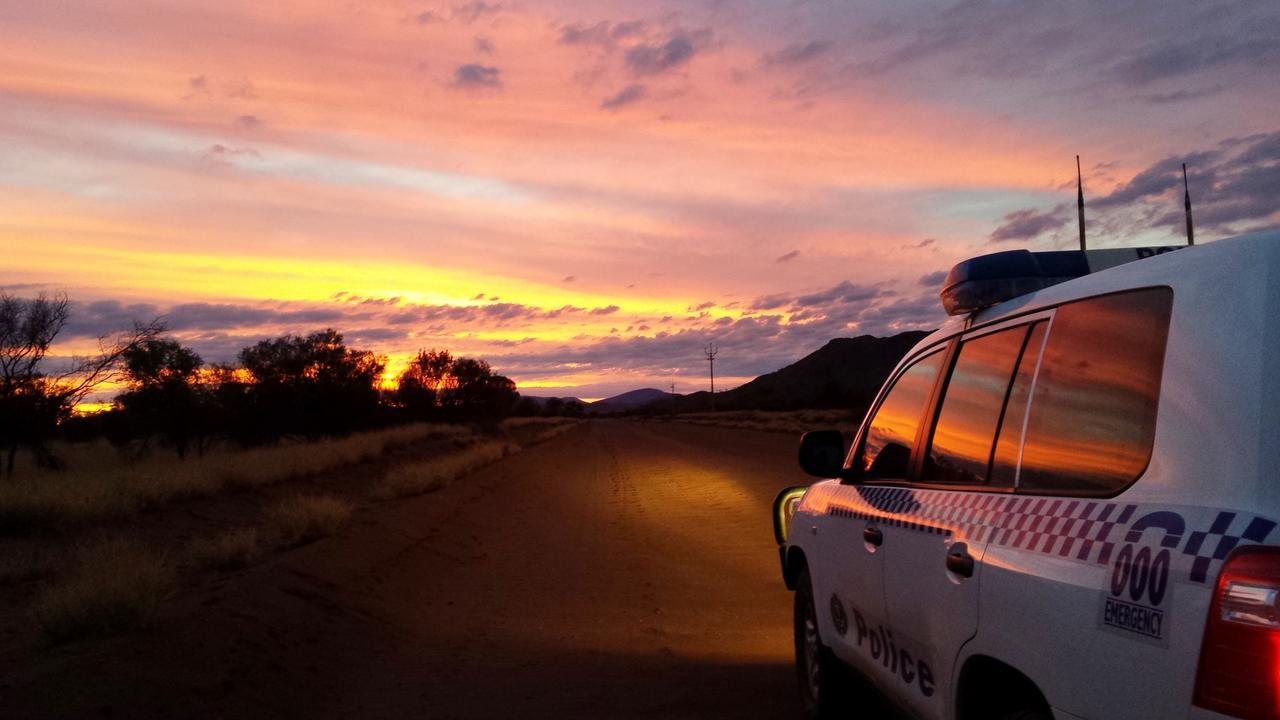
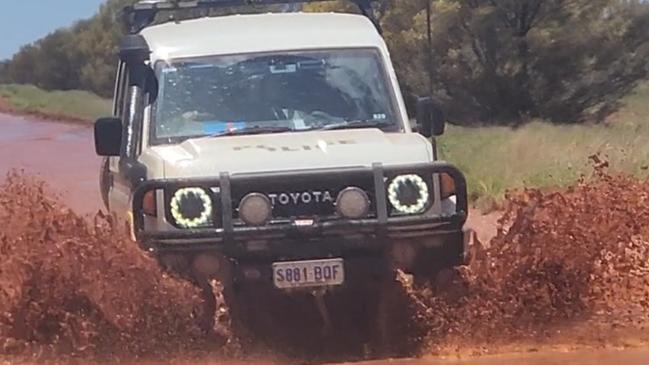
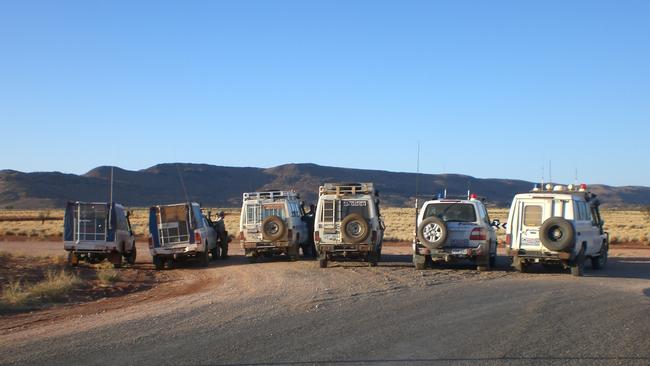
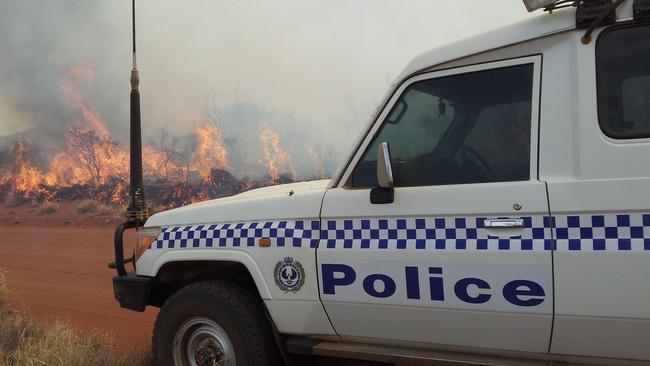
Senior Constable Gibson and Senior Sergeant Stone say policing up here is complicated by the tyranny of distance, which leads to a lack of resources, but that fighting crime in the Lands is no different to anywhere else, despite the region’s sometimes wild reputation.
“If something was to escalate in Adelaide you’d have resources at your doorstep whereas here you haven’t,” Senior Sergeant Stone says.
“So you’ve got to approach things a bit differently, a bit more holistically. Take action when you have to be, be dynamic when you need to be and be holistic when you need to be.
“It’s a lot of bigger picture stuff when you are handling something, because you’ve got to go back in the communities and live with these people.”
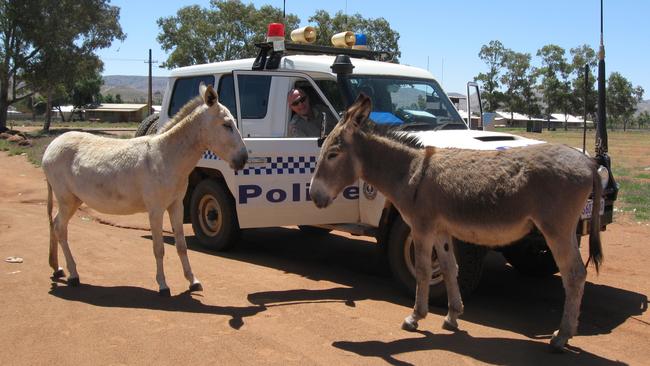
Officers work closely with community constables and Aboriginal liaison officers scattered throughout the lands, and call on them for information or updates – especially if rain has made roads impassable. They also rely on the relationships, trust and rapport they have established with community members.
Driving between communities can take up a large proportion of an officer’s day. They become adept at changing blown out tyres and accustomed to trips taking twice as long as they should, depending on the condition of the tracks.
Like the bosses at other service providers in the APY Lands, Senior Sergeant Stone is keen to sell the benefits of the region in an effort to attract more potential workers.
There are, of course, financial incentives. Officers who work up here receive allowances that add thousands of dollars to their annual salary.
“But the biggest incentive, I would think, would be this – how often would you get to see this part of the world and get paid for it,” Senior Sergeant Stone says.
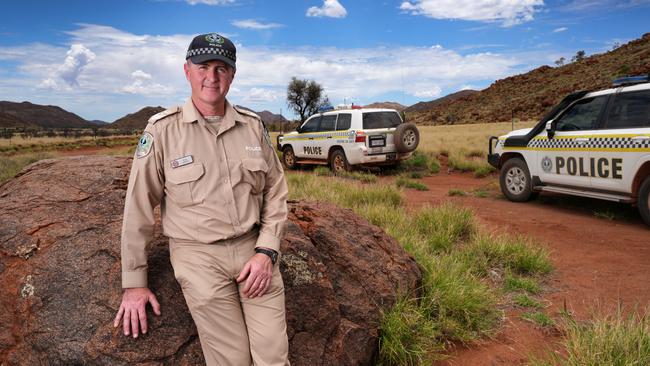
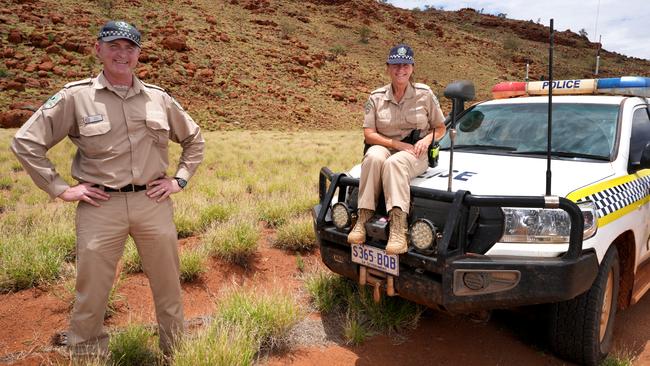
“There’s some pretty amazing people to meet and places to see, and just the experience of being up here. And, you know, I reckon less than one per cent of South Australians will get here in their lifetimes.”
Commissioner Grant Stevens congratulated SA’s three police medal recipients.
“Mark, Sandra, and Lynette each exhibit outstanding qualities and commitment to their policing roles,” he said
“Each are leaders in their fields, respected in their communities, and most deserving of this accolade. While they haven’t sought thanks or recognition, on behalf of SAPOL, I congratulate and thank each of them for their service.”






